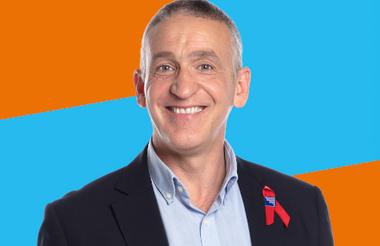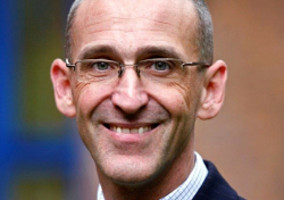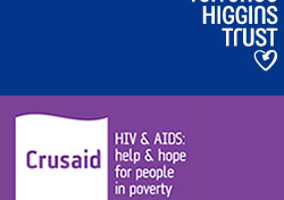Ian Green joined Terrence Higgins Trust as chief executive in 2016 after a tumultuous few years for the HIV charity.
Six months before he arrived, former CEO Rosemary Gillespie was asked to leave after making claims of alleged sexual harassment. Following this, an employment tribunal found that she was unfairly dismissed.
Green says it was not easy joining the charity at such a challenging time. One of the first things he did when he was appointed was to review the charity’s strategy to ensure it was robust.
He felt providing “strong leadership and stability to the organisation” was key “despite the noise that was happening externally”.
Green says: “We’re a completely different organisation [now]. Since then, we've transformed. We've had a wide-ranging review of all of our policies and processes.”
A few weeks ago, the Trust announced that Green would leave his post early next year when his replacement has been found. Asked about his departure, he says: “I think it's positive for me, I've been at the organisation for six years now. And I think it's important that there is a change and after seven years, I think that's probably about right for somebody in a chief executive’s position.”
Green will move to a part-time international role at Prevention Access Campaign where he will provide senior strategic leadership. He will also continue being a non-executive director for a branch of the NHS Foundation Trust and chair of an Estuary Housing Association.
First contact with Terrence Higgins Trust
Green was diagnosed with HIV in 1996 at the age of 30 and was told that he only had up to eight years to live. However, that same year, life-saving treatment for HIV was discovered and enabled him to outlive this diagnosis.
It was during this difficult time that Green first came into contact with the Terrence Higgins Trust.
“I turned to the organisation. I was provided with free counselling, and that really facilitated having a bit of peace around my HIV diagnosis at that point in time. The fact that the medical advances have now been so somebody can have a normal life expectancy, and also can't pass HIV on because of the incredible medication that we take, has been transformational.”
Green says his own experience as a service user influenced the way he chose to lead the charity.
“For me to have had that journey over 26 years has had a massive impact in terms of the approach I've taken to lead in Terrence Higgins Trust. I’ve ensured that the voices of people living with HIV have been heard at the very centre of the organisation.
“It's been the privilege of my life to lead an organisation that has been with me on my journey with HIV and will continue to do so after I've left.”
HIV stigma ‘is still there’
While the stigma surrounding HIV “has got better” according to Green, “it’s still very real in many people’s lives”.
It is still one of the most stigmatised conditions there is, he says, despite the amount of medical advancements there have been.
Green has experienced prejudice for being HIV positive himself numerous times.
“I know personally, I've gone to have blood taken outside of a HIV specialist service and I've had a nurse stamp high risk on my phlebotomy form which is completely inappropriate and not required. I'm very reluctant to talk to my dentist about living with HIV because I've had experiences where dentists have come out in hazmat suits.”
This stigma is not just anecdotal. From a survey Terrence Higgins Trust conducted via YouGov in 2019 of over 2,000 participants, the charity found 48% of people would feel uncomfortable kissing somebody with HIV while 38% wouldn't date somebody who was HIV positive.
“Stigma is still there,” says Green. “There's institutionalised stigma. So up until recently until the campaign that we ran was successful, somebody couldn't join the military if they were living with HIV – that's now changed. Somebody couldn’t be a commercial airline pilot with an unrestricted licence until we campaigned with some airline pilots with HIV.”
Resetting the narrative
The stigma surrounding HIV remains despite a life-changing fact that was discovered a few years ago. If HIV becomes undetectable by repeatedly taking antiretroviral therapy (ART), it is no longer transmissible via sex.
This message, Undetectable = Untransmittable (U=U), will go a long way in depleting the stigma surrounding the virus, Green says, as well as people with HIV sharing their stories.
“That will slowly start to chip away at the stigma associated with HIV. So, we're making progress but there's a long way to go.”
He feels the stigma stems from the initial response to HIV during the AIDS epidemic of the 1980s.
“I think that for many people of a certain age, their narrative around HIV is stuck in the 1980s. The tombstone campaign was the most significant public health campaign there's ever been and that was talking about HIV as something to be feared or that HIV is going to be the death of you.
“That narrative is stuff that we need to quash. We've been pressing the government to do a different campaign that talks more positively and hopefully about HIV today that actually resets the narrative.”
Campaign to ban conversion therapy
As a “naive, vulnerable” 19-year-old gay man, Green put himself through conversion therapy in a faith-based setting to try and change his sexual orientation.
The government agreed to ban conversion therapy last year but Terrence Higgins Trust are campaigning with other LGBT+ charities to ensure trans people are included in the legislation.
“I passionately believe that conversion therapy is evil, and should be banned. And if it's evil and it should be banned for me, why should that not be the case for trans and non-binary people as well?” he says.
“As the HIV and sexual health charity, if people feel so bad about themselves, they're more likely to put themselves at risk of HIV and other sexually transmitted infections. They're built-in shame.”
Green says the charity has a particular responsibility to more at-risk groups. For example, trans women are 20 times more likely to live with HIV than others.
“We have a responsibility to everybody to ensure that they have knowledge and awareness around HIV and good sexual health. That's really, really crucial. But again, it’s about equity.
“Sometimes, you need to target some communities that are disproportionately impacted by HIV and poor sexual health in order to make sure you make the best possible outcome for people to get to the goal of ending HIV transmission.”
Becoming CEO ‘will change your life’
The recruitment process to appoint Green's successor will begin shortly, and he encourages people to apply.
“I think people should apply for this job because it will change your life. If you are wanting to join an organisation that is going to challenge you, motivate you and inspire you, to deliver to you opportunities you never thought you would ever have, then apply.
“You are able to see the real genuine impact you have on the lives of individuals. If you want that to happen, you want to take the organisation from where it is now and enable it to grow and develop and meet its mission. Then their mission is a job for you.”
Related articles












